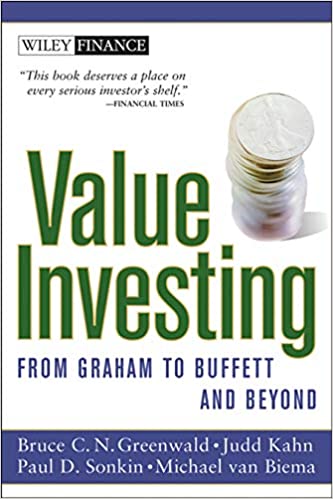In Bruce Greenwald’s Book – Value Investing: From Graham to Buffett and Beyond, there’s a great passage on what to do when no good opportunities exist. Here’s an excerpt from the book:
This brings us by a circuitous route back to modern investment theory and the efficient market hypothesis. Value investors would not be in business if they did not believe that fundamental analysis done from the value perspective can, in some but not all cases, identify an intrinsic value for a security that varies substantially from the price Mr. Market is quoting. Information and understanding do make a difference.
But when the value investor’s search for new ideas fails to turn up anything promising, then the default option may indeed be a broadbased index fund or some variant of it.
If the manager is being measured against other equity managers, the option of sitting with large amounts of cash may not be wise. The justification for holding an index fund as a portion of the portfolio is straightforward.
Historically, the stock market has outperformed bonds or cash over most five-year periods.’ In the absence of particular knowledge or information, an index is indeed the best choice available. In fact, if the manager has no special insights at all, then the index is the choice for the entire portfolio, in which case the manager is superfluous.
The case for active management of whatever persuasion only makes sense when the manager knows or understands more than the market. When that ceases to be the case, then it may be time to defer to Mr. Market.
For all the latest news and podcasts, join our free newsletter here.
Don’t forget to check out our FREE Large Cap 1000 – Stock Screener, here at The Acquirer’s Multiple:



